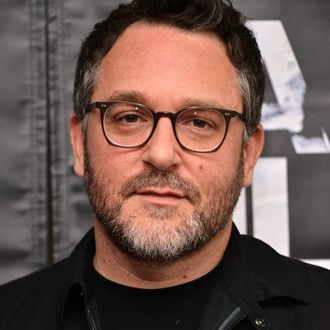
Over the weekend, Jurassic World and Star Wars: Episode IX director Colin Trevorrow spoke about why more women aren’t directing blockbuster franchises, irking said women with his theory in the process. As first explained in a L.A. Times piece about studios putting more faith in lesser-known male directors, Trevorrow’s instinct is that “women are being offered these kinds of movies, but they’re choosing not to make them.” When someone on Twitter challenged Trevorrow’s gender privilege, asking if he thinks he’d have been offered Jurassic World if he were a woman, Trevorrow gave this lengthy response in defense of his initial remarks:
His acknowledged naïveté about Hollywood’s institutional sexism, however, was quickly called out by female directors and actresses. Hysteria director Tanya Wexler took issue with Trevorrow’s assertion that women’s lack of “desire” to make a studio blockbuster and high artistic integrity are more responsible for the gender imbalance in directing than a lack of opportunity across the board: “I have all the desire in the world. I would kill to make a blockbuster,” she tweeted, with former DGA Women’s chair Rachel Feldman backing her up. Jaime King summed up her disappointment by tweeting, “It’s unfortunate that you believe this,” to which Trevorrow responded, “I believe that there is an imbalance in our industry that needs to change, and it will. If I’m muddling my point, I apologize.”
Trevorrow further clarified his argument and explained how he hopes to personally correct Hollywood’s biases, issuing a statement to Slash Film:
“The last thing I’d want to communicate is that I don’t acknowledge this problem exists. I think the problem is glaring and obvious. And while it does make me a little uncomfortable to be held up as an example of everything that’s wrong, this is an important dialogue to have, so let’s have it.
Would I have been chosen to direct Jurassic World if I was a female filmmaker who had made one small film? I have no idea. I’d like to think that choice was based on the kind of story I told and the way I chose to tell it. But of course it’s not that simple. There are centuries-old biases at work at every level, within all of us. And yes, it makes me feel shitty to be perceived as part of this problem, because it’s an issue that matters so much to me. If I didn’t care, I wouldn’t talk about it in the first place.
I do stand by the idea that a great many people in the film industry want this to change. I have made attempts at every turn to help turn the tide, and I will continue to do it. When I got the script for Lucky Them, released last year, I advocated hard for my friend Megan Griffiths to direct. She did, and she made a wonderful film (see it please). On my next project, Book of Henry, nearly all of my department heads and producers are women. Will I give a female filmmaker the same chance Steven Spielberg gave me someday? Let’s hope that when I do, it won’t even be noteworthy. It will be the status quo.”


